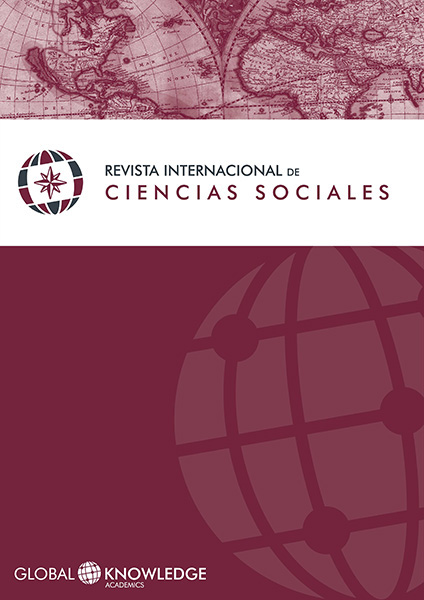The Crossroad of Interdisciplinarity: Avatars in the Land of No One (Intra-ethnography and Self-Estrangement)
DOI:
https://doi.org/10.37467/gka-revsocial.v1.1209Keywords:
Interdisciplinarity, Auto-ethnography, Anthropology, Philosophy, Africanism, Curriculum, AcademyAbstract
The aim of this article is an exercise in ethnography (through a process of self-estrangement) applied to my own research career, discipline and curriculum, as a result of my experience with a bachelor in philosophy and anthropology, with a master in development cooperation and from the African studies (with an Africanist anthropological thesis, defended in a department of philosophy with no tradition about it). I propose to reflect on the intersection, controversial in itself, we find between these different disciplines, fields and regional study areas, with their particular heritage, customs, rituals and rigors, epistemologies, transmitted traditions, methodologies, empiricism, endowments or classifications, from my bio-bibliographical experience and the building of my own curriculum. The ultimate goal is the epoche, the suspension of judgment about reality, or the relativism on each of those disciplinary experiences, the study process coming from its meeting (crossroads) and the emergence of the "land of no one" (uncomfortable while libertarian) in the investigation. Arguably, then, I'll try to test an "ethnography" of my own academic path illuminated by philosophical reflection
Downloads
Global Statistics ℹ️
|
335
Views
|
173
Downloads
|
|
508
Total
|
|
References
Amorós Puente, C. (1990). Hacia una crítica de la razón patriarcal. Buenos Aires: Anthropos.
Anthias, F. (2012). “Beyond social categories: different levels of analysis and intersectional framings”. Conferencia en el I Congreso Internacional FEMIGRA: Feminismo, migración e intervención social”, Barcelona, 9-11 febrero 2012.
Bourdieu, P. (2001). El oficio de científico. Ciencia de la ciencia y reflexividad. Barcelona: Anagrama.
Bueno Martínez, G. (2006). “Reflexión filosófica sobre el Guión Vital de Eric Berne”. En: F. Valbuena (ed.), Eric Berne. Teórico de la comunicación (p. 233-251). Madrid: Edipo S. A.
Butler, J. (2008). El género en disputa. El feminismo y la subversión de la identidad. Barcelona: Paidós.
Corsín Jiménez, A. (2007). The anthropology of organisations. Inglaterra: Aldershot Hampshire.
Ferrándiz Martín, F. J. (2011). Etnografías contemporáneas. Anclajes, métodos y claves para el futuro. Barcelona: Anthropos.
Grosfoguel, R. (2009). “Apuntes hacia una metodología fanoniana para la decolonización de las ciencias sociales”. En: F. Fanon (ed.), Piel negra, máscaras blancas (pp. 261-284). Madrid: Akal.
Husserl, E. (2002). Lecciones de fenomenología de la conciencia interna del tiempo. Madrid: Trotta.
Lins Ribeiro, G. y Escobar, A. (2006): “Las antropologías del mundo. Transformaciones de la disciplina a través de los sistemas de poder”. Universitas Humanística 61: 15-49.
Massó Guijarro, E. (2010). “El postulado de la neutralidad versus la afirmación de la crítica. Meditaciones sobre antropología y epistemología”. Revista de Antropología Experimental 10: 93-109 (http://www.ujaen.es/huesped/rae/articulos2010/05masso10.pdf).
Massó Guijarro, E. (2011). “La lactancia materna como catalizador de revolución social feminista (o apretando las clavijas al feminismo patriarcal): calostro, cuerpo y cuidado”. XLVIII Congreso de Filosofía Joven “Filosofías subterráneas”, Donostia-San Sebastián, España, 4-6 mayo 2011.
Mignolo, W. (2000): Local histories / Global designs. Coloniality, subaltern knowledges and border thinking. Princeton: Princeton University Press.
Reynoso, C. (2000). Apogeo y decadencia de los estudios culturales. Barcelona: Gedisa.
Spivak, G. Ch. (2010). Crítica de la razón poscolonial: hacia una historia del presente evanescente. Madrid: Akal.
Villarmea Requejo, S. (2012): “Innovación conceptual y activismo: a propósito del parto y del nacimiento normal”. Revista Ob Stare 20.
Villarmea Requejo, S. y Fernández Guillén, F. (2012). “Sujetos de pleno derecho. El nacimiento como tema filosófico”. En: E. Pérez Sedeño y R. Ibáñez Martín (eds.). Cuerpos y diferencias. México, Plaza y Valdés Editores.
Downloads
Published
How to Cite
Issue
Section
License
Those authors who publish in this journal accept the following terms:
-
Authors retain copyright.
-
Authors transfer to the journal the right of first publication. The journal also owns the publishing rights.
-
All published contents are governed by an Attribution-NoDerivatives 4.0 International License.
Access the informative version and legal text of the license. By virtue of this, third parties are allowed to use what is published as long as they mention the authorship of the work and the first publication in this journal. If you transform the material, you may not distribute the modified work. -
Authors may make other independent and additional contractual arrangements for non-exclusive distribution of the version of the article published in this journal (e.g., inclusion in an institutional repository or publication in a book) as long as they clearly indicate that the work was first published in this journal.
- Authors are allowed and recommended to publish their work on the Internet (for example on institutional and personal websites), following the publication of, and referencing the journal, as this could lead to constructive exchanges and a more extensive and quick circulation of published works (see The Effect of Open Access).













